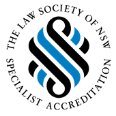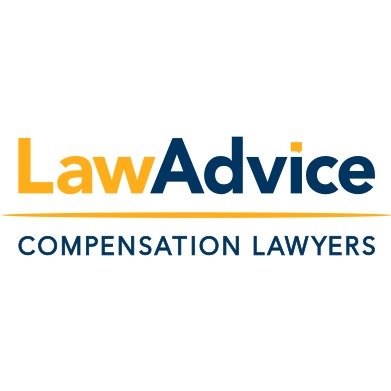Best Work Injury Lawyers in Parramatta
Share your needs with us, get contacted by law firms.
Free. Takes 2 min.
List of the best lawyers in Parramatta, Australia

About Work Injury Law in Parramatta, Australia:
Work Injury Law in Parramatta, New South Wales, revolves around claims made by employees who have suffered injuries or illnesses due to their workplace or while performing job duties. The Workers Compensation Act 1987 provides the legislative framework for these issues in Parramatta and all of New South Wales. If a worker is injured at their place of work, they have the right to medical care, compensation for lost wages, and other necessary support.
Why You May Need a Lawyer:
Navigating through workers' compensation claims can be complicated, and you may encounter several obstacles when lodging a claim. A lawyer can help you understand your rights, identify potential compensation areas, guide through the claims process, represent you if a dispute arises, and protect you from any unlawful practices by your employer or insurance agency. Also, if your injury involves long-term disabilities, a lawyer can be beneficial in securing your financial future.
Local Laws Overview:
The Workers Compensation Act 1987 and the Workplace Injury Management and Workers Compensation Act 1998 are the primary laws dealing with work injuries in Parramatta, Australia. These laws establish a framework for compensating injured employees, including income support, lump sum payments for permanent impairment and pain and suffering, payment of medical expenses, and assistance with rehabilitation. It's important to note that claims must be lodged within six months of the date of injury, or two years in specific situations.
Frequently Asked Questions:
1. What type of injuries are covered by workers compensation?
Workplace injuries including physical and psychological injuries, diseases caused by work, injuries incurred while traveling for work, and injuries suffered while at a recess are typically covered by workers' compensation.
2. What is my employer's role in the claims process?
Employers are required to notify their insurer within 48 hours of becoming aware of an injury, and are also required to support you through your recovery and your claim.
3. How can I lodge a worker's compensation claim?
Inform your employer about your injury, visit a doctor and get a 'certificate of capacity', then lodge a claim with your employer's insurance company using this certificate.
4. Can I be sacked while on workers' compensation?
An employer typically cannot terminatе your employment within six months of your inability to work due to a work-related injury or illness.
5. Do I need to pay legal fees upfront?
This depends on your lawyer. Some lawyers may charge an upfront fee, while others work on a 'no win, no fee' basis, meaning they only get paid if they win your case.
Additional Resources:
You may find help from the Workers Compensation Independent Review Office (WIRO) and the State Insurance Regulatory Authority (SIRA) in New South Wales. They provide information and resources relating to work injury laws and compensation.
Next Steps:
If you need legal assistance with a work injury incident, you should reach out to a lawyer specialising in workers' compensation as soon as possible. They can guide you through the process and help you secure the best possible outcome for your situation.
Lawzana helps you find the best lawyers and law firms in Parramatta through a curated and pre-screened list of qualified legal professionals. Our platform offers rankings and detailed profiles of attorneys and law firms, allowing you to compare based on practice areas, including Work Injury, experience, and client feedback.
Each profile includes a description of the firm's areas of practice, client reviews, team members and partners, year of establishment, spoken languages, office locations, contact information, social media presence, and any published articles or resources. Most firms on our platform speak English and are experienced in both local and international legal matters.
Get a quote from top-rated law firms in Parramatta, Australia — quickly, securely, and without unnecessary hassle.
Disclaimer:
The information provided on this page is for general informational purposes only and does not constitute legal advice. While we strive to ensure the accuracy and relevance of the content, legal information may change over time, and interpretations of the law can vary. You should always consult with a qualified legal professional for advice specific to your situation.
We disclaim all liability for actions taken or not taken based on the content of this page. If you believe any information is incorrect or outdated, please contact us, and we will review and update it where appropriate.








